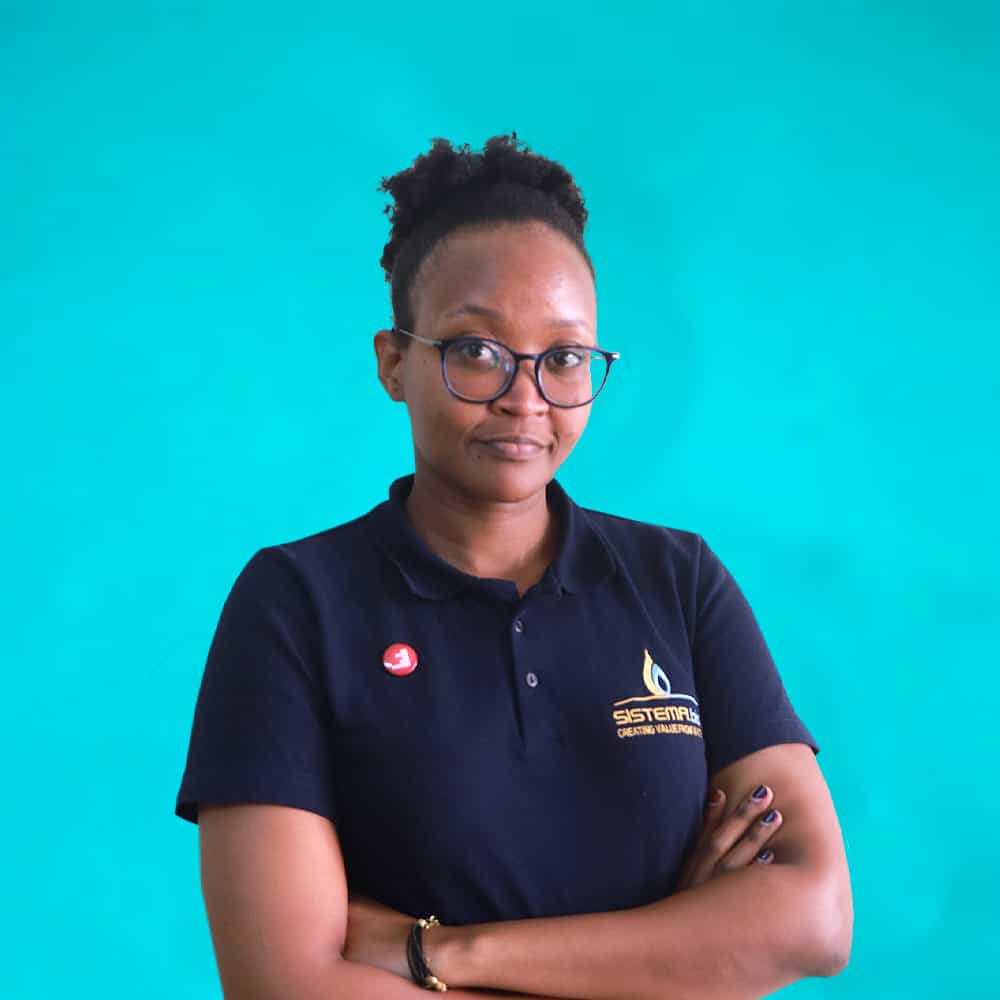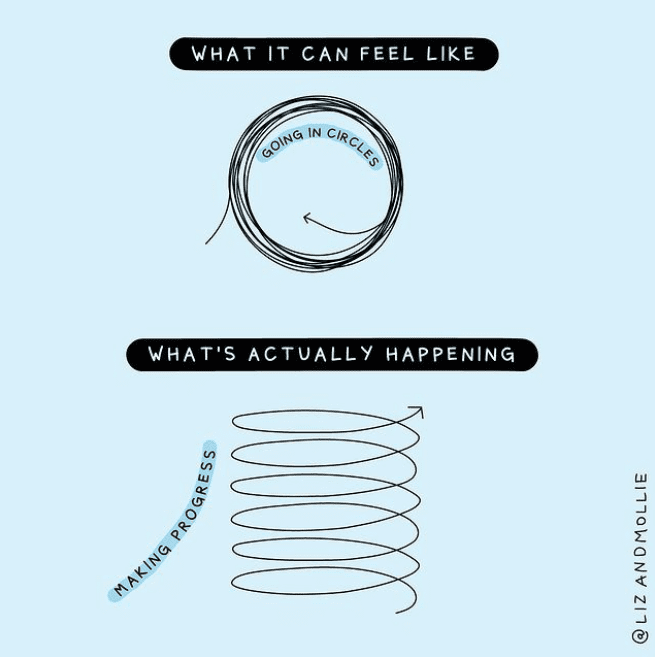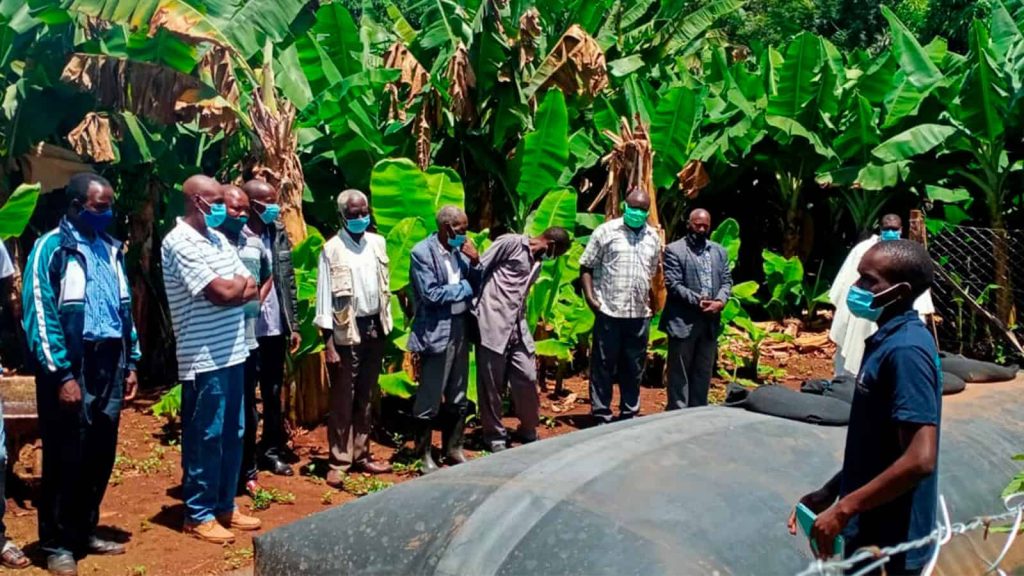
Wilfrida Macharia
Sistema.bio People Coordinator | Kenya
It’s a Saturday and this is probably the sixth attempt at writing this article. Finally at 9:43am I got inspired and figured out what I wanted to write. Like most of us, I thought 2020 was going to be my year & the pressure of job searching was derailed when the pandemic struck. we had to rethink our work, which led most of us to transform the corners of our homes into a cozy & functional workspace.
Joining the Sistema.bio Kenya team was my first experience of the virtual culture dilemma. I was used to in-person meetings and one-on-one interactions with my colleagues.Now I was experiencing my very first virtual and remote onboarding. It riddled me with endless questions of what were the unwritten rules. For example: If you’re on a video call with four of your colleagues, is it all right to turn your camera off? And what about your outfit, is casual appropriate for a Monday? And before you even figure it out, a week is over and you’ve carefully navigated the unstated cultural and emotional norms that exist within the new working-from-home dynamic. This new world had shifted the way we communicate, relate and collaborate as we ventured into the world of remote workforce.
The exciting part of this experience was that I went through it and worked on the strategies at the same time, a new dynamic for solving challenges for any people/talent professional. The remote workforce added a new component into the organizational culture mix, one that forced us to rethink how we could bring out the best of our diverse teams. It became clear overnight that business leaders should not only be aware of culture shifts, but proactively address how to drive business forward. Waiting it out was no longer a sustainable option, and the time for action was (and is) now.

The virtual culture dilemma brought forward questions and challenges for our workforce at different levels. Managers couldn’t notice a team member having a rough week and suggest a quick lunch outside the office. Casual conversations with our colleagues talking about the weekend plans of hiking or going to theatres were impossible with lockdown limiting our social activities. It was clear that we ran the risk of being disengaged, as well as of a low morale and overall performance.
One of our Sistema.bio values, we grow by learning and sharing, was a reminder that we needed a hands-on approach to implement an action plan that shaped a more collaborative and productive workplace. Our criteria for selecting the thematic areas where we could start the change, was based on four questions:
- How do we focus on the wellbeing of our teams?
- How do we communicate and connect in our teams?
- How do we manage performance during this crisis?
Focus on Wellbeing
When unexpected changes happen, it becomes nearly impossible to stick to routines and retain a level of certainty to perform our work. We tend to enter a default mode that allows us to cope with all the changes, sometimes to the detriment of our mental and physical wellbeing. A deliberate mindful environment needed to be created and we did make changes, e.g. better time off policies to support people who needed switching off from work, team meetings that focused on sharing our experiences in these pandemic times, and setting healthy boundaries on working hours. As I write this, I see my Line Manager reminding me that I need to leave my desk every 30 minutes and stretch —I appreciate that!
Communication & Connecting
Getting a sense of the overall mood and cohesion of the team might seem like a challenge when everyone is remote. But in reality, it just means going back to the basic simple steps.
We’re all interconnected, which makes decision-making, meetings, and problem-solving feel exhausting —especially when it means endless Google Meet video calls. These collaborative sessions may, at times, make people feel frustrated, drained and lacking any sense of achievement at the end of the week. To navigate this, we try to always ask ourselves:
- Is this a meeting necessary, or will an email suffice?
- Did I check everyone’s calendar before booking?
- Do I have days blocked out for work with no meetings?
Even when you answer those questions successfully, it means at times requesting your meeting to be video-off because you’ve had one too many meetings.
As a team, I have seen us adapt and grow with time. Communication tools, when used properly, are an effective way to create deeper connections with your team —to learn how to communicate better, more often, and more effectively.For example, I look forward to our Chief of Staff, Cecile Pompei’s bi-weekly email newsletters on team updates, which focuses on people and the impact they’re bringing to the business.
Managing Performance in a Crisis
Even before the pandemic, performance reviews are normally a stressful and daunting process if improperly executed. Now, remote-working teams brought a new ball game. We had to rethink our previously set Key Performance Indicators (KPIs) and OKRs, which also meant resetting the questions:
- What are we trying to solve?
- What can we accomplish in a month, in case another wave of lockdown ensues?
- What experiments can we test?
- What can we de-prioritize for now?
- What short-term solution can help set us up for long-term success?
These are questions that everyone in the organization is now expected to think about and translate into their work. It isn’t always clear-cut, but it is a good basis for performance metrics and it drastically changed how we assessed the team’s performance. It’s shifting our mindset from surviving to thriving as we work to change farmer’s lives.
TL:DR
If there’s one thing the pandemic has reaffirmed, it’s the value of soft skills. It’s hard work, and it involves a lot of unlearning behaviours and unearthing vulnerabilities in people. It’s by putting people first that everything else in business will fall into place. We need to remember that no one was prepared for a full-on virtual culture for all businesses that would trigger a need for better social and emotional skills in working and interacting with teams. It’s a new phase that I’m excited to be a part of, and the possibilities for building a collaborative and cohesive team to help in climate action are endless. And I’m happy to say, we’re working on it!
